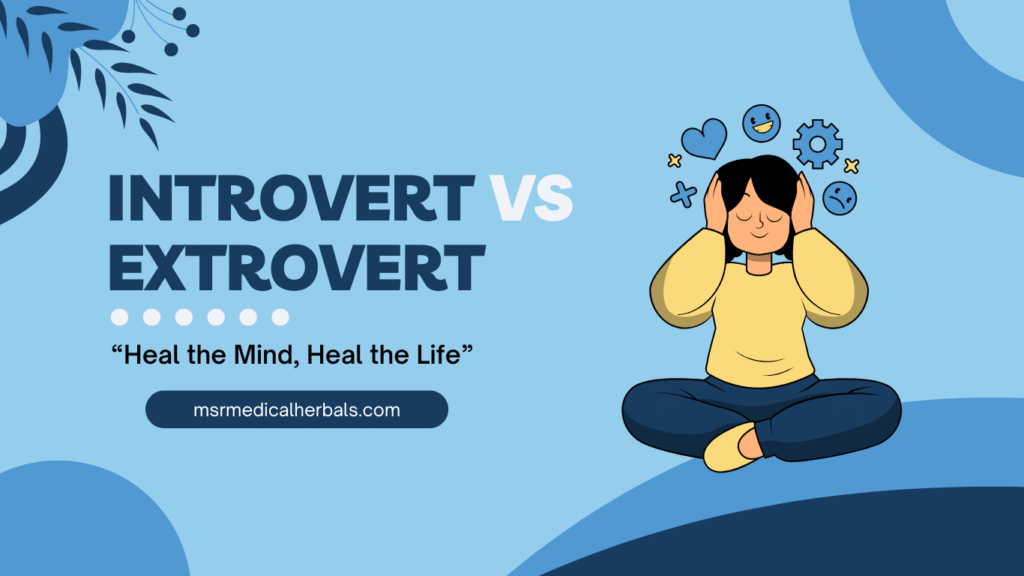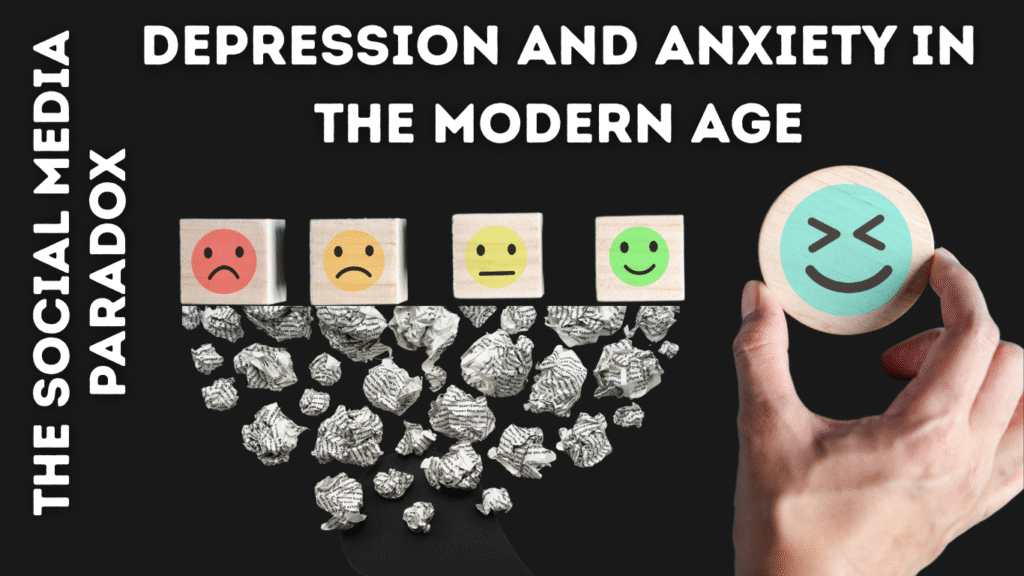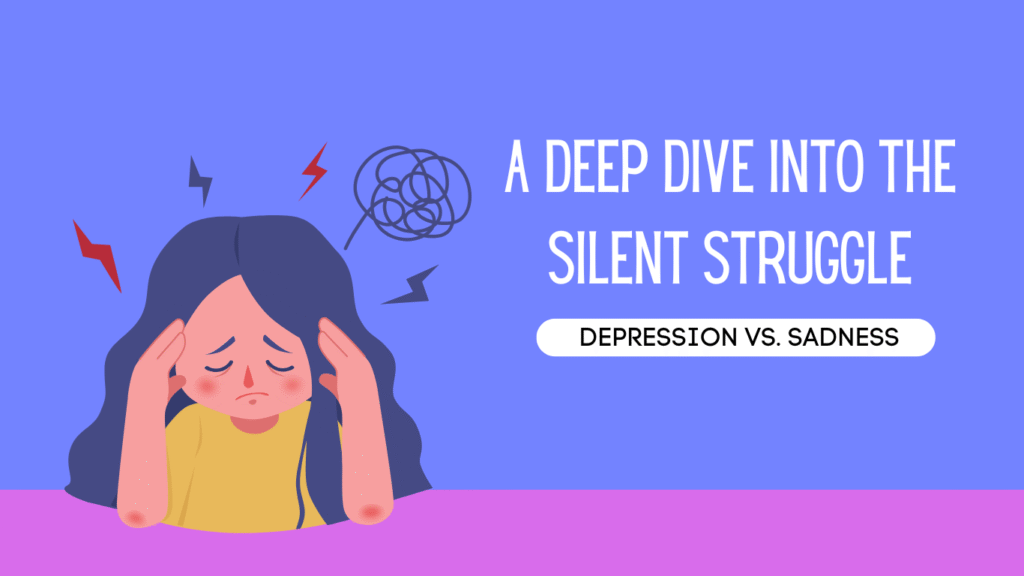Introduction
Are you energized by crowds or drained by them? Do you love alone time, or does silence feel suffocating? These clues point to where you fall in the introvert vs extrovert spectrum — a key concept in personality psychology that explains how we respond to the world.
In this article, we’ll break down the difference between introvert and extrovert, how to identify which one you are, and why this matters in your personal and professional life.
What Is an Introvert vs Extrovert?
At its core, the introvert vs extrovert distinction is about energy. An introvert recharges by being alone, while an extrovert gains energy through social interactions. These aren’t just preferences — they reflect deep neurological patterns.
So, what is an introvert vs extrovert? Introverts are inward-focused, often reflective and reserved. Extroverts are outward-focused, talkative, and sociable.
Introvert vs Extrovert: Core Differences
Let’s break it down:
| Trait | Introvert | Extrovert |
| Energy Source | Alone time | Social interaction |
| Communication | Think before speaking | Speak to think |
| Social Behavior | Fewer, deeper relationships | Many, varied relationships |
| Stimulation | Prefer calm | Seek excitement |
| Focus | Inner thoughts | External environment |
These differences create unique strengths — and sometimes, conflicts — between introverts vs extroverts.
Introvert Personality Traits
Some key signs you might be an introvert:
You prefer solitude or one-on-one interactions
Crowds tire you out
You enjoy deep conversations
You’re often reflective and self-aware
You dislike small talk
If this sounds like you, you’re likely on the introverted side of the introvert vs extrovert test.
Extrovert Personality Traits
Signs of an extrovert personality include:
You feel energized after socializing
You thrive in group settings
You often speak before thinking
You’re assertive and outgoing
You’re bored or restless when alone
Extroverts are generally more expressive and spontaneous, loving variety and stimulation.
Introverted vs Extroverted Eyes
An interesting theory suggests you can tell someone’s personality by observing their introverted vs extroverted eyes. Introverts tend to have more inward-focused or contemplative expressions, while extroverts show lively, outward-focused eyes.
Though not a scientific test, eye contact and facial expression often reflect deeper personality patterns.
How Many People Are Introverts vs Extroverts?
You might wonder, how many introverts vs extroverts are there?
According to various studies, about:
50-60% of people are extroverts
30-40% are introverts
10-20% are ambiverts (a mix of both)
So, while extroverts may seem more visible, introverts make up a huge portion of the population — they just tend to stay quieter about it.
The Science Behind Introverts vs Extroverts
This isn’t just personality fluff — biology plays a role. Research shows introverts and extroverts process dopamine (the reward chemical) differently. Extroverts have a more active dopamine system, making them seek external rewards. Introverts are more sensitive to stimulation and prefer calm environments.
Introvert vs Extrovert Quiz: How to Know Where You Stand
Wondering where you land? Taking an introvert vs extrovert quiz can help. These quizzes ask about your social preferences, energy levels, and habits to guide you toward your personality type.
Popular tools like the MBTI (Myers-Briggs Type Indicator) use these traits to categorize people into 16 types, based on introversion and extroversion among other factors.
Introvert vs Extrovert Test: Psychological Tools
Psychologists use several reliable assessments to determine your type:
MBTI
Big Five Personality Test
Eysenck Personality Questionnaire
These introvert vs extrovert tests are often used in therapy, HR, and education to better understand individual needs and preferences.
What Shapes Introvert and Extrovert Personalities?
Personality is shaped by both nature and nurture. Genetics plays a big role, but your environment also influences where you fall on the introvert-extrovert spectrum. Life experiences, family dynamics, and even culture can impact how we interact with the world.
Common Myths About Introverts and Extroverts
Let’s clear some things up:
Introverts aren’t shy or antisocial — they just value depth over quantity.
Extroverts aren’t loud or attention-seeking — they simply express themselves outwardly.
You’re not “better” or “worse” for being either.
It’s not extrovert vs introvert — it’s about understanding and respecting the differences.
Can You Be Both? Understanding Ambiverts
Yes! If you don’t fit perfectly into either category, you might be an ambivert — someone with a balanced mix of introvert and extrovert traits. Ambiverts adapt to situations, thriving both in solitude and social settings.
Why Understanding the Difference Between Introvert and Extrovert Matters
Knowing your type isn’t just interesting — it helps in real life. From choosing careers to handling relationships or planning your weekend, knowing whether you lean introvert or extrovert helps you make better decisions for your mental well-being.
Introverts vs Extroverts at Work and in Relationships
Introverts may excel in focused, independent work. Extroverts often shine in collaborative, fast-paced roles. In relationships, introverts offer deep emotional presence, while extroverts bring energy and enthusiasm.
Understanding these dynamics can improve communication and avoid misunderstandings.
Conclusion
The difference between introvert and extrovert goes far beyond social preference. It’s about how we recharge, think, feel, and engage with the world. Whether you’re an introspective introvert, a spirited extrovert, or a balanced ambivert, embracing your personality type is key to living authentically.
Take an introvert vs extrovert test, reflect on your habits, and learn to use your strengths — because the world needs all kinds of minds.
FAQs
1. Can someone switch from introvert to extrovert?
Not entirely. Personality traits are stable, but behavior can adapt over time.
2. Are introverts smarter than extroverts?
No type is “smarter.” They simply excel in different areas — introverts in deep thinking, extroverts in social dynamics.
3. Is it bad to be an introvert?
Not at all. Introverts bring valuable qualities like focus, empathy, and introspection.
4. Can two introverts or extroverts make a good couple?
Yes! With good communication and mutual understanding, any personality combo can thrive.
5. What jobs are good for introverts vs extroverts?
Introverts may enjoy writing, research, or counseling. Extroverts may prefer sales, teaching, or event planning.



